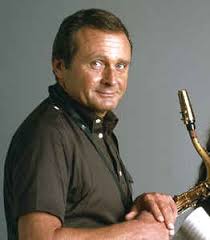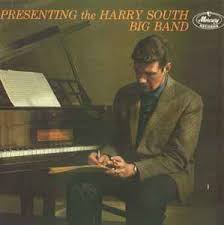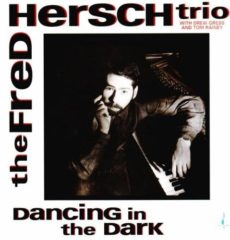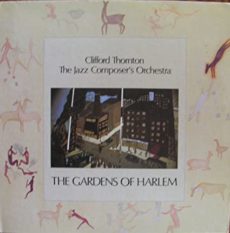
Three Wishes
Baroness Pannonica inquired of Stan Getz that if granted three wishes what would he ask for and he told her:
-
-
“Justice.”
-
“Turth.”
- “Beauty..”
-
*Excerpt from Three Wishes: An Intimate Look at Jazz Greats ~ Compiled and Photographed by Pannonica de Koenigswarter
More Posts: baroness,history,instrumental,jazz,music,pannonica,saxophone,three,wishes

Daily Dose Of Jazz…
Phillip Sanford Wilson was born on September 8, 1941 in St. Louis, Missouri and was a third-generation musician. His grandfather, Ira Kimball, was a riverboat percussionist on the Mississippi to New Orleans.
His recording debut was with Sam Lazar, noted for having one of the first interracial bands in the St. Louis area. After moving to Chicago, Illinois he became a member of the Association for the Advancement of Creative Musicians (AACM) and performed with the Art Ensemble of Chicago.
He joined up with the Paul Butterfield Blues Band in 1967 at a time when the band membership changed greatly, including an added horn section. He recorded three albums with the group. Wilson’s song Love March, written with Gene Dinwiddie, was performed at Woodstock and released in 1970 on the live album from the festival.
Wilson, along with Dinwiddie and fellow former Butterfield Band member Buzz Feiten, formed the jazz-rock band Full Moon in the early 1970s. They recorded a self-titled album which is considered one of the finest early examples of jazz fusion. He was part of the loft jazz scene in 1970s New York City, worked as a session musician for Stax Records in Memphis, Tennessee and with Jimi Hendrix at the Cafe Au Go Go and Generation Club in 1968. They recorded with The Last Poets, Fontella Bass, Olu Dara, David Murray, Anthony Braxton, and Carla Bley. He worked extensively with Lester Bowie. In 1985, along with Bill Laswell co-produced the album Down by Law under the group name Deadline.
He recorded four albums as a leader and as a sideman recorded twenty-one albums with Hamiet Bluiett, Lester Bowie, Anthony Braxton, Paul Butterfield, Julius Hemphill, Sam Lazar, Frank Lowe, Roscoe Mitchell, and David Murray.
Drummer Phillip Wilson, while pursuing his musical career, was stalked and murdered in New York City on March 25, 1992. As a result of America’s Most Wanted television program, Marvin Slater was convicted for premeditated murder in 1997 and sentenced to 33 1/3 years in state prison. The reason for his murder has never been revealed.
More Posts: bandleader,drums,history,instrumental,jazz,music

Daily Dose Of Jazz…
Harry Percy South was born on September 7, 1929 in Fulham, London, England. Coming into prominence in the 1950s, he subsequently performed with Joe Harriott, Dizzy Reece, Tony Crombie, and Tubby Hayes. In 1954, he was in the Tony Crombie Orchestra, together with Dizzy Reece, Les Condon, Joe Temperley, Sammy Walker, Lennie Dawes, and Ashley Kozak.
After returning from a nine-month stint in Calcutta, India, with the Ashley Kozak Quartet, he spent four years with the Dick Morrissey Quartet, where he both wrote and arranged material for their subsequent four albums.
Forming his own jazz big band in 1966, featuring UK musicians Hayes, Dick Morrissey, Phil Seamen, Keith Christie, Ronnie Scott, and Ian Carr, and recorded an album for Mercury Records. In the mid-1960s, he began working with British rhythm & blues singer and organist Georgie Fame, with whom he recorded the album Sound Venture. At that time he was also composing and arranging for Humphrey Lyttelton, Buddy Rich, Sarah Vaughan, and Jimmy Witherspoon.
Working for a time as the musical director to Annie Ross, Harry later branched out into session work, writing themes for television and music libraries, and having written the scores for the Pete Walker films, he is also credited with the arrangements for Emerson, Lake & Palmer, again arranged for Annie Ross and Georgie Fame in collaboration on what was to be Hoagy Carmichael’s last recording, In Hoagland.
Pianist, composer, and arranger Harry South, who was honored with the CD Portraits ~ The Music of Harry South released by the National Youth Jazz Orchestra, passed away on March 12, 1990 in Lambeth, London at age 60.
More Posts: arranger,bandleader,composer,history,instrumental,jazz,music,piano

Requisites
Dancing In The Dark ~ The Fred Hersch Trio | By Eddie Carter
I recently reacquainted myself with one of the most accomplished pianists in jazz. Fred Hersch has been playing since he was four, composing music since he was eight, and recorded over seventy original tunes. Fred’s worked with many great musicians and vocalists, performed as a classical soloist with orchestras and in chamber settings plus led his own groups. He’s also appeared at the Jazz Standard and Village Vanguard, has an extensive discography, and has been nominated for several Grammy Awards including one for the album I’m discussing this morning.
I first heard this record at the 1994 Consumer Electronics Show in Las Vegas. It was one of the most auditioned audiophile LP’s heard on the turntables of various high-end manufacturers. Dancing In The Dark (Chesky Records JR 90) is a stellar album by The Fred Hersch Trio that I’m really happy to have in my library. Joining the pianist are Drew Gress on bass and Tom Rainey on drums. My copy used in this report is the 1993 US Stereo Audiophile pressing.
Side One starts with Dancing In The Dark, written by Arthur Schwartz and Howard Dietz. The song’s first appearance was in the 1931 musical revue, The Band Wagon. It was later reprised in the 1953 film version. Fred displays a delicate touch on the trio’s graceful melody, then goes right to the heart with a strong statement expressing happiness enhanced by Drew and Tom’s supportive energy into a tender fade. I Fall In Love Too Easily is a 1944 song by Jule Styne and Sammy Cahn first heard in the film Anchors Aweigh a year later. The threesome eases into a tranquil opening chorus. Gress starts with a slow, seductive groove of beguiling warmth, then Hersch gradually builds gentle cascades into a passionately tender performance.
Secret Love by Sammy Fain and Paul Francis Webster was first recorded in 1953 by Doris Day who also sang it in the musical film, Calamity Jane. The group takes this tune for a midtempo spin and each member gives an entertaining interpretation. The first side concludes with If I Should Lose You, composed in 1935 by Ralph Rainger and Leo Robin. This song comes from the 1936 film, Rose of The Rancho. Hersch makes this a solo showcase, beautifully characterizing the melody into an intimate dialogue that casts a spell of sensual beauty ahead of an exquisite ending.
Side Two starts with a spirited rendition of the 1948 Cole Porter composition, So In Love, first heard in the Broadway musical, Kiss Me, Kate. The mood is jubilant from the start of the trio’s theme treatment, and Fred swings into an enthusiastic workout before the slow-tempo out-chorus. For All We Know is a song composed in 1934 by J. Fred Coots and Sam M. Lewis that’s very popular among jazz and pop vocalists. Hersch lovingly performs the first chorus solo, then Gress and Rainey add their sinuous support to the remainder of the melody. Fred’s infectiously grooving interpretation showcases the pianist’s dazzling dexterity.
My Funny Valentine by Richard Rodgers and Lorenz Hart is one of the most beautiful songs ever written. It premiered in the 1937 Broadway musical, Babes In Arms. The trio paints on a subtle palette for the nostalgically tender theme. Fred’s lead solo is thoughtfully elegant and Drew crafts a deliciously inviting reading preceding the pianist’s reprise and soft summation. Dancing In The Dark was produced by David Chesky and Fred Hersch.
The album was recorded by Bob Katz, engineered by David Merrill, Jeremy Kipnis, and Peter Cho. It was mastered at Record Technology Incorporated and pressed on premium 180-gram audiophile vinyl. It’s a great demonstration record for your audio system with crystal-clear highs, a sharp midrange, and deep bass for a stunning soundstage. If you’re a fan of piano jazz and enjoy the standards, I invite you to go Dancing In The Dark with The Fred Hersch Trio. Your ears will be rewarded with an extremely enjoyable album that’s just right for a romantic evening with that special someone!
~ Dancing In The Dark, For All We Know, I Fall In Love Too Easily, If I Should Lose You, My Funny Valentine – Source: JazzStandards.com
~ Fred Hersch, Secret Love (Columbia 40108), So In Love – Source: Wikipedia.org
© 2020 by Edward Thomas Carter
More Posts: choice,classic,collectible,collector,history,instrumental,jazz,music,piano

Daily Dose Of Jazz…
Clifford Edward Thornton III was born on September 6, 1936 in Philadelphia, Pennsylvania into a musical family, his uncle pianist Jimmy Golden and his cousin, drummer J. C. Moses. He began piano lessons when he was seven-years-old, and studied with trumpeter Donald Byrd during 1957 after Byrd had left Art Blakey’s Jazz Messengers, and also that he worked with 17-year-old tuba player Ray Draper and Webster Young. Following a late 1950s stint in the U.S. Army bands, he moved to New York City.
In the early 1960s, Clifford lived in the Williamsburg area of Brooklyn, New York in an apartment building with other young musicians, including Rashied Ali, Marion Brown, and Don Cherry. He performed with numerous avant-garde jazz bands, recording as a sideman with Sun Ra, Archie Shepp, Pharoah Sanders, and Sam Rivers.
During the Seventies, Thornton and others were affected by the compositional ideas of Cecil Taylor, was active in the Black Arts Movement, and associated with Amiri Baraka and Jayne Cortez. This musical and artistic network provided him with a variety of perspectives on ideas such as black self-determination, performance forms, outside playing, and textural rhythm; and giving him access to performers who would provide the abilities some of his later compositions required.
He was included in the dialogue around the developing thought of political artists, including Shepp, Askia M. Touré, and Nathan Hare, as well as the journals Freedomways and Umbra. As an educator, he taught world music at Wesleyan University and created an Artists-in-Residence on campus, giving the academic world-music community exposure to Sam Rivers, Jimmy Garrison, Ed Blackwell, and Marion Brown. He arranged performances by Rashied Ali, Horace Silver, McCoy Tyner, and numerous others
Trumpeter, trombonist, activist, and educator Clifford Thornton, who played free and avant~garde jazz in the 1960 and ‘70s, passed away on November 25, 1989.
More Posts: bandleader,educator,history,instrumental,jazz,music,trombone,trumpet




